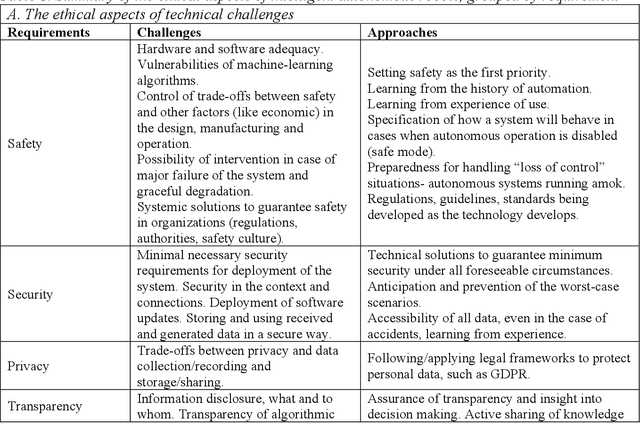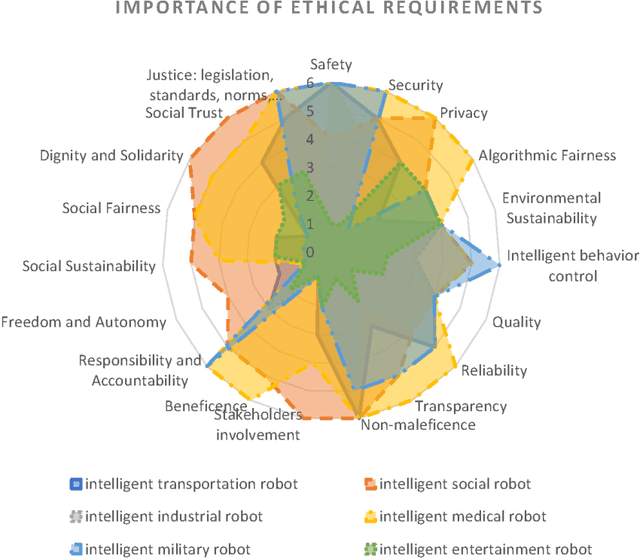Tobias Holstein
Future Intelligent Autonomous Robots, Ethical by Design. Learning from Autonomous Cars Ethics
Jul 16, 2021

Abstract:Development of the intelligent autonomous robot technology presupposes its anticipated beneficial effect on the individuals and societies. In the case of such disruptive emergent technology, not only questions of how to build, but also why to build and with what consequences are important. The field of ethics of intelligent autonomous robotic cars is a good example of research with actionable practical value, where a variety of stakeholders, including the legal system and other societal and governmental actors, as well as companies and businesses, collaborate bringing about shared view of ethics and societal aspects of technology. It could be used as a starting platform for the approaches to the development of intelligent autonomous robots in general, considering human-machine interfaces in different phases of the life cycle of technology - the development, implementation, testing, use and disposal. Drawing from our work on ethics of autonomous intelligent robocars, and the existing literature on ethics of robotics, our contribution consists of a set of values and ethical principles with identified challenges and proposed approaches for meeting them. This may help stakeholders in the field of intelligent autonomous robotics to connect ethical principles with their applications. Our recommendations of ethical requirements for autonomous cars can be used for other types of intelligent autonomous robots, with the caveat for social robots that require more research regarding interactions with the users. We emphasize that existing ethical frameworks need to be applied in a context-sensitive way, by assessments in interdisciplinary, multi-competent teams through multi-criteria analysis. Furthermore, we argue for the need of a continuous development of ethical principles, guidelines, and regulations, informed by the progress of technologies and involving relevant stakeholders.
 Add to Chrome
Add to Chrome Add to Firefox
Add to Firefox Add to Edge
Add to Edge